The Japan Foundation Awards / Special Prizes (2000)
Each year, the Japan Foundation confers The Japan Foundation Awards and the Japan Foundation Special Prizes on individuals and organizations who have made outstanding contributions to cultural exchange and mutual understanding between Japan and other countries. The awards are made in recognition of these achievements, and to encourage the recipients in future endeavors. The Awards are conferred in recognition of conspicuous past contributions upon those whom it is thought will continue to be influential; the Special Prizes are awarded to individuals or organizations of impressive achievement, in the particular hope that they will be increasingly active in the future.
The Awards ceremony and Speachs of Acceptance
The Japan Foundation Awards
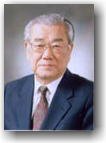
Chi Myon Kwan
Director, Institute of Japanese Studies, The Hallym Academy of Sciences, Hallym UniversityProfessor Chi has made an invaluable contribution to the rapid improvement in the relations between Japan and Korea in recent years. In particular, he has striven over many years to promote closer ties between the two countries in the areas of history and culture, and is the founder of the largest center for Japanese studies in Korea.
Brief Personal History
| 1954 |
Graduated from Seoul National University |
|---|---|
| 1958 |
M.A. in Religious Studies, Seoul National University |
| 1960 |
Assistant Professor, Duksung Woman's University in Seoul |
| 1964 |
Editor-in-Chief, Sasangge (monthly magazine) |
| 1966 - 72 |
Professor of Philosophy, Duksung Women's University in Seoul |
| 1972 - 86 |
Visiting Professor of Philosophy and Christian Ethics, Tokyo Woman's Christian University |
| 1986 - 93 |
Professor of Korean Studies, Tokyo Woman's Christian University |
| 1994 - |
Director, Institute of Japanese Studies, The Hallym Academy of Sciences, Hallym University |
| 1997 - 99 |
Chairman, The Korea-Japan Joint Commission for the Promotion of Historical Studies |
| 1998 - |
Chairman, The Korea-Japan Cultural Exchange Policy Committee |
| 1999 - |
Chairman, The Korea-Japan Cultural Exchange Council |
| 2000 - |
Chairman of the Board of Directors, Korean Broadcasting System |
Major Publications
The History of the Relations of Korea and Japan: From the System of 1965 to the System of 2000 (Seoul: Protestant Publishing Company, 1999).
Stories of Korean History (Tokyo: Akashi Shoten, 1998).
Korea: The Way to Democratization (Tokyo : Iwanami Shoten, 1995).
What Are Human Assets? (Tokyo: Iwanami Shoten, 1994).
Chogori and Yoroi: (Tokyo: Toro-Jiro Publishing Company, 1988).
Religion in Catastrophic Age (Seoul : Protestant Publishing Company, 1985).
The Japan Foundation Awards
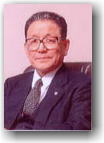
Yoneo Ishii
President, Kanda University of International StudiesAs a scholar and researcher in a broad range of fields, including history, religion, and linguistics, Professor Ishii has developed a large body of scholarly works of an international caliber and has contributed to the promotion of scholarship. Moreover, he has contributed importantly to international exchange by furthering the internationalization of Asian studies in Japan and by promoting a better understanding of Asia.
Brief Personal History
| 1955 |
Left Tokyo University of Foreign Studies, joined Ministry of Foreign Affairs of Japan. For 10 years, worked on various missions, including the Asian Affairs Bureau, the Minister's Secretariat, and the Embassy of Japan in the Royal Kingdom of Thailand |
|---|---|
| 1965 |
Assistant Professor, Kyoto University |
| 1967 |
Professor, Kyoto University |
| 1990 |
Professor Emeritus, Kyoto University Professor, Sophia University |
| 1991 |
Director, The Centre for East Asian Cultural Studies for UNESCO |
| 1992 |
Academic Advisor, Japan Society for the Promotion of Sciences |
| 1993 - 94 |
Director, Sophia University, Institute of Asian Cultures |
| 1995 |
President, Kanda University of Foreign Studies |
| 2000 |
Honorary Fellow, Sophia University, Institute of Asian Cultures |
Awards Received
| 1987 |
3rd Degree Medal of the White Elephant, The Royal Kingdom of Thailand |
|---|---|
| 1995 |
Medal of Honor with Purple Ribbon, Japanese Government |
Major Publications
Jozabu Bukkyo no Seijishakaigaku: Kokkyo no Kozo [The Politico-Sociology of Mahayana Buddhism: The Structure of a National Religion] (Tokyo: Sobunsha, 1975).
Junk Trade from Southeast Asia (Singapore: Institute of Southeast Asian Studies, 1998).
Tai Kindaishi Kenkyu Josetsu [An Introduction to Research on the Modern History of Thailand] (Tokyo: Iwanami Shoten, 1999).
The Japan Foundation Special Prizes

Willy F. Vande Walle
Department Chair, Section of Japanese Studies, Department of Oriental and Slavonic Studies The Catholic University of LeuvenAs a pioneering scholar of Japanese studies in Belgium, Dr. Vande Walle has striven in the field of research and the training of scholars. He has been instrumental in establishing the Catholic University of Leuven as a leading center of Japanese studies in Europe and has actively worked toward promoting academic exchange with institutions of higher learning in Japan. As a leading international scholar on Japan, it is hoped that he will continue to serve as an invaluable link between Japan and Belgium, as well as with the whole of Europe.
Brief Personal History
| 1972 |
The State University of Ghent, Belgium (B.A.) |
|---|---|
| 1972 - 75 |
Studied at the Osaka University of Foreign Studies and at University of Kyoto |
| 1976 |
The State University of Ghent, Belgium (Ph.D. in Oriental Philology) |
| 1977 |
Research Fellow (Japan Foundation Fellowship) at the Institute for Research in Humanities, The University of Kyoto |
| 1978 - 81 |
Instructor, The Catholic University of Leuven |
| 1985 |
Founded the Section of Japanese Studies at the Catholic University of Leuven |
| 1981 - 89 |
Assistant Professor, in charge of Japanese Studies, The Catholic University of Leuven |
| 1989 - |
Professor, in charge of Japanese Studies, The Catholic University of Leuven |
| 1993 |
Visiting Professor, International Research Center for Japanese Studies |
Major Publications
Basho, dichter zonder dak, Haiku en poetische reisverhalen [Basho, Poet without a Roof: Haiku and Poetic Travelogues] (Leuven: Petters, 1985).
Japan: Het onvoltooide experiment [Japan: An Unfinished Experiment] (Tielt: Drukkerij-Uitgeverij Lannoo, 1989; with Ludo Meyvis).
Tomioka Tessai (Brussels: Europalia Foundation International, 1989; with Hiroshi Kanazawa).
Schertsend geschetst. Haiku-schilderingen van de 17de tot de 20dte eeuw uit de verzameling Kakimori Bunko [Haiku Paintings from the Seventeenth to the Twentieth Centuries from Kakimori Bunko] (Brussels: Europalia Foundation International, 1989; with Urara Okada and Maki Imai).
Tawara Machi. De dag van het slaaije [Dutch translation of Machi Tawara's Sarada Kinenbi] (Tielt: Drukkerig-Uitgeverij Lannoo, 1989; with Bart Mesotten).
Website
Japanese Studies KULeuven Website http://japanology.arts.kuleuven.ac.be/
- The Tikotin Museum of Japanese Art, Haifa Museums
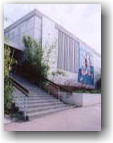
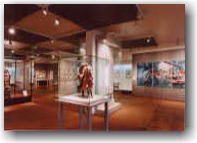
As the largest museum of Japanese art in the Middle East, the Tikotin Museum has served to introduce Japanese culture and to promote mutual understanding between Japan and Israel, as well as with the entire Middle Eastern region, over the last forty years.
[Mission and Programs]
The Museum's collection comprises more than 7,000 items representing Japanese arts and crafts from the 14th through the 19th centuries. In addition, to organize multiple exhibitions focusing on different aspects of Japanese culture each year, the Museum functions as a study center of Japanese culture by holding seminars and workshops.
Brief History and Major Exhibitions
| 1956 |
The Japanese art collection of Felix Tikotin, Dutch architect and collector of Japanese art, was donated to the city of Haifa upon his bequest. |
|---|---|
| 1959 |
Haifa City Council decided to acquire the Kisch House and its land as the site of the Museum. |
| 1960 |
Opened the doors to the public, with an exhibition of works from the collection of Felix Tikotin. |
| 1961 |
"Facsimiles of Landscapes in Sumi" and "Kuniyoshi: Prints and Drawings" |
| 1965 |
"Contemporary Japanese Prints" and "Contemporary Photographs of Japan" |
| 1967 |
"Humor in Japanese Art" |
| 1969 |
"The Western World in Japanese Art" |
| 1972 |
"Early 20th-century Japanese Woodblock Prints" |
| 1975 |
"Japanese Landscape Paintings" |
| 1980 |
"Modern Japanese Prints" and "Belief and Ritual in Japanese Art" |
| 1982 |
"Bijin-ga: Woman in Japanese Art" |
| 1983 |
"Kabuki Theatre Prints" |
| 1987 |
"Japanese Film Posters from the Ehud Avishai Collection" |
| 1988 |
"The 53 Stations of the Tokaido" |
| 1995 - 96 |
"The Way of the Gods: Religion in Japanese Art" and "Nami: The Ceramic Art of Ryoji Koie" |
| 1998 |
"Samurai: Harmony in Brush and Sward" and "Ink Marks: Calligraphy and Ink drawings by Kazuo Ishii" |
| 1999 |
"Black Gold: Japanese Lacquer Boxes" |
| 2000 |
"FANtastic: Fan Prints from the Tikotin Collection" |
| [Representatives:] |
Mr. Nissim Tal (Director General of Haifa Museums) |
|---|---|
| [Address:] |
89 Hanassi Avenue, Haifa, Israel |
| [Tel:] |
972-4-8383554 |
The Japan Foundation Special Prizes
- The Daido Life Foundation
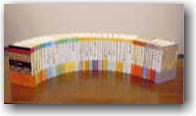
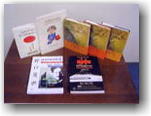
The Daido Life Foundation has contributed to the promotion of mutual understanding between Southeast Asia and Japan through its steady support of translation, publishing, and other activities. Moreover, the Foundation has contributed importantly to the promotion of academic research in various regions of the world.
Background and Aim
As part of the project to commemorate the 80th anniversary of the founding of Daido Life Insurance Company, the Foundation was established in 1985 in order to promote international mutual understanding and the internationalization of Japan through programs and support for cultural exchange between Japan and other countries.
Activities
The Daido Life Foundation Award for Area Studies
Prizes are awarded to promote academic research in studies of various areas of the world. Translation and Publication
Translation and Publication of Asian Literature into Japanese:
In order to promote Japanese people's understanding of today's Asian countries, the Foundation publishes a series of selected literature of Asian countries in Japanese: 34 titles from 9 Asian countries have been published in the "Modern Literature of Asia" series. Translation and Publication of Japanese books into Asian languages:
In order to promote Asian people's understanding of Japan, the Foundation translates and publishes Japanese books in Asian languages: 6 titles in 3 languages have been published in the "Japanese Mirrors" series. The Daido Life Foundation & Oxford University Press Collaboration Program:
This program publishes the works of Japanese academics in English.
The Daido Life Foundation Scholarship Program:
Scholarships are granted to foreign students studying in Japanese universities and local students studying in educational facilities in Southeast Asia. Donation of Japanese books:
In order to promote Japanese-language education and international mutual understanding, the foundation has donated Japanese books to three Thai universities that carry out Japanese-language education. Financial Support to various international cultural exchange programs.
- What We Do Top
- Arts and Cultural Exchange [Culture]
- Japanese-Language Education Overseas [Language]
- Japanese-Language Education Overseas [Language] Top
- Learn Japanese-language
- Teach Japanese-language
- Take Japanese-Language Test
- Know about Japanese-language education abroad
- The Japanese-Language Institute, Urawa
- The Japanese-Language Institute, Kansai
- Japanese-Language Programs for Foreign Specified Skilled Worker Candidates
- Japanese Language Education for Japanese Children Resident Overseas and for the Descendants of Migrants
- Archives
- Japanese Studies and Global Partnerships [Dialogue]
- JF digital collection
- Other Programs / Programs to Commemorate Exchange Year
- Awards and Prizes
- Publications
